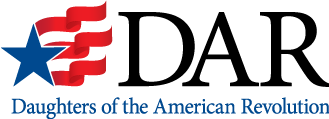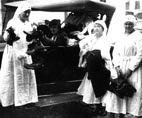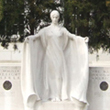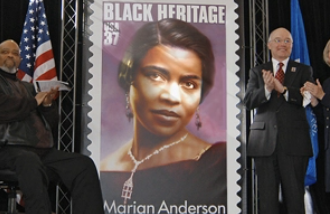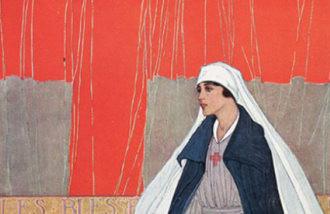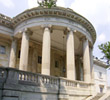
The National Society Daughters of the American Revolution was founded in 1890 to preserve the memory and spirit of those who contributed to securing American independence. Any woman 18 years or older, regardless of race, religion, or ethnic background, who can prove lineal descent from a patriot of the American Revolution is eligible for membership.
In applying for DAR membership, women must document their lineage back to an ancestor who aided the cause of American independence. These efforts may come through military, civil or patriotic service and must occur during the period between 19 April 1775 (Battle of Lexington) and 26 November 1783 (withdrawal of British Troops from New York).
The National Society accepts service as follows:
- Signers of the Declaration of Independence
- Military Service, such as participation in:
Army and Navy of the Continental Establishment
State Navy
State and Local Militia
Privateers
Military or Naval Service performed by French nationals in the American theater of war
-
Civil Service, under authority of Provisional or new State Governments:
State Officials
County and Town Officials (Town Clerk, Selectman, Juror, Town Treasurer, Judge, Sheriff, Constable, Jailer, Surveyor of Highways, Justice of the Peace, etc.)
-
Patriotic Service, which includes:
Members of the Continental Congress, State Conventions, and Assemblies
Membership in committees made necessary by the War, including service on committees which furthered the cause of the Colonies from April 1774, such as Committees of Correspondence, Inspection, and Safety, committees to care for soldier's families, etc.
Signer of Oath of Fidelity and Support, Oath of Allegiance, etc.
Members of the Boston Tea Party
Signers of Petitions acknowledge the right of the new provincial and/or state government to represent the people. In addition, the content and wording of the petition must clearly demonstrate loyalty to the cause of American independence. Petitions regarding religious issues do not qualify.
Defenders of Forts and Stations: Individuals who lived on the frontier, from the Great Northern Lakes to Georgia, who are documented as having actively defended the western frontiers against British forces and their allies, the Indians.
Doctors, nurses, and others rendering aid to the wounded (other than their immediate families)
Ministers who gave patriotic sermons and encouraged patriotic activity
Furnishing a substitute for military service
Prisoners of war or refugees from occupying forces
Prisoners on the British ship Old Jersey or other prison ships
Service in the Spanish Troops under Galvez or the Louisiana Militia after 24 December 1776
Service performed by French nationals within the colonies or in Europe in support of the American cause
Those who rendered material aid, in Spanish America, by supplying cattle for Galvez's forces after 24 December 1776
Those who applied in Virginia for Certificates of Rights to land for settlement and those who were entitled to and were granted preemption rights
Those who took the Oath of Fidelity to the Commonwealth of Virginia from October 1779 to 26 November 1783
Those who rendered material aid and supported the cause of American Independence by furnishing supplies, with or without remuneration, loaning money and/or providing munitions. Some states enacted special tax laws to raise money for supplies. Payment of these “supply” taxes is considered patriotic service.
The National Society reserves the right to determine the acceptability of all service and proof thereof.
To get started on your genealogy search, visit the DAR Genealogy section of the website.
